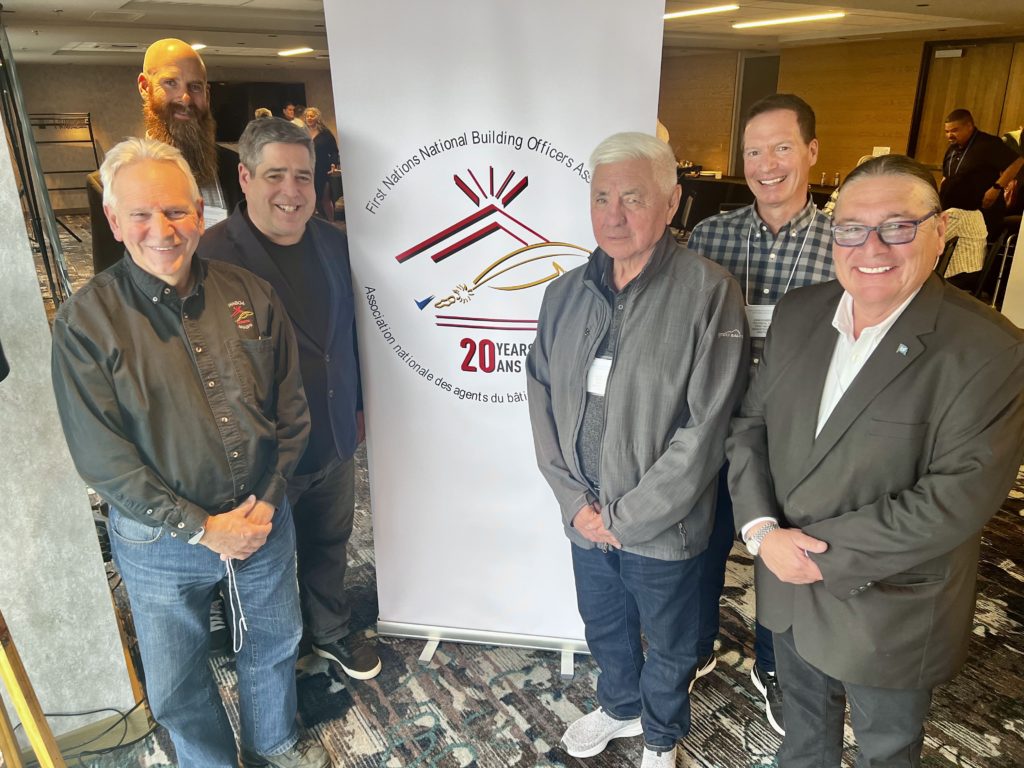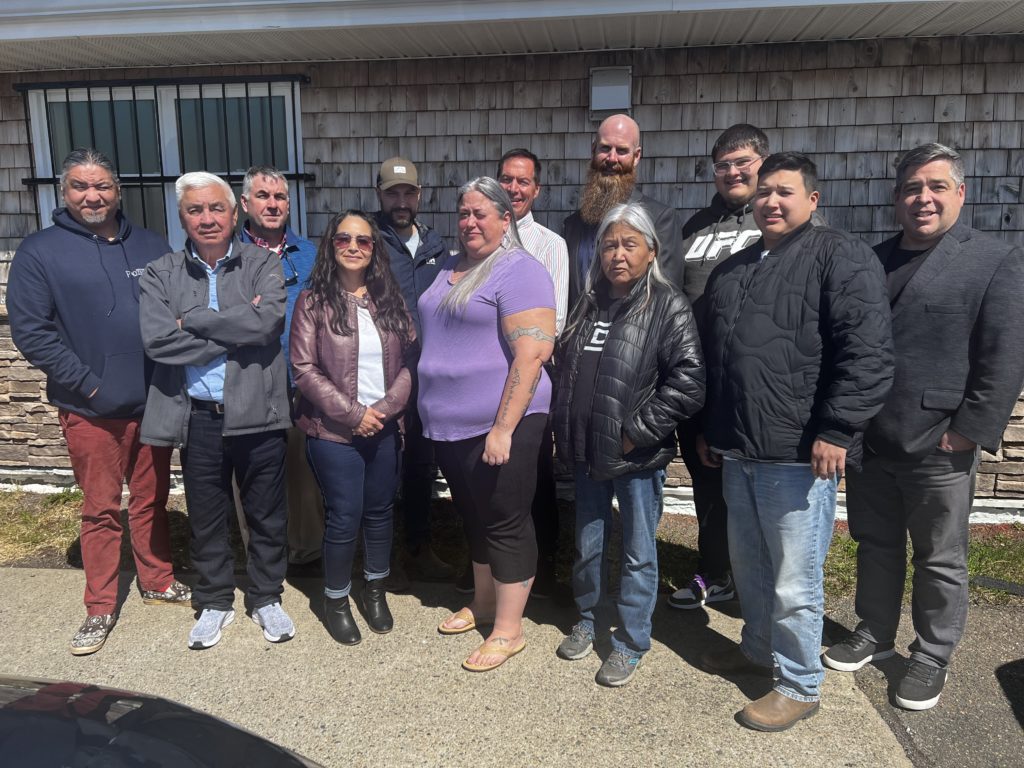FNII has developed a close working relationship with Paqtnkek Mi’kmaw Nation Chief and Council.
Allan Claxton, Jason Calla, John Dumbrell, and Jason Reeves were in the Maritimes in April, as the FNII Team made stops at Paqtnkek Mi’kmaw Nation in Nova Scotia and a First Nations housing conference in Moncton, New Brunswick.
Paqtnkek has engaged FNII’s free (and optional) services to help plan water and wastewater infrastructure to support future residential and commercial development.
In a presentation to Chief Cory Julian and other Council members, Calla lauded the stellar work done toward a comprehensive land use plan that will act as the foundation for future growth.
“The work on the land use plan has community input front and centre,” said Calla. “It will help to identify where and when infrastructure system improvements will be needed to support member housing, community amenities and economic development.”
Calla says he remembers about five years ago when then-Chief Paul Prosper talked about a “project called Bayside” – a proposed new commercial development on the TransCanada Highway. The Bayside Travel Centre has since become an award-winning retail enterprise creating steady jobs for Paqtnkek members and nearby residents.
Chief Julian said he was impressed by the collaboration involving FNII, the Atlantic First Nations Water Authority, Dillon Consulting, Fathom Consulting, and others.
“I think the work done so far has been extremely beneficial,” said Julian. “It will help us as council deliberate the next steps for improved water and wastewater systems that are desperately needed.”
Claxton, former chief of Tsawout First Nation and Chair of FNII’s Development Board, says he’s been impressed since day one when Paqtnkek came onboard as one of two ‘proof of concept’ projects. The other is the Chippewas of Kettle & Stony Point First Nation in southern Ontario.
“I know from my home community that these infrastructure projects can be challenging. So planning, not just to build but to operate and maintain these projects, is critical. That’s where the FNII tools can really be important.”

At the meeting of the First Nations National Building Officers Association (FNNBOA), from left to right: John Kiedrowski, Project Manager, FNNBOA; Jason Reeves (back), FNII Technical Advisor; Jason Calla, FNII Technical Advisor; Allan Claxton, former chair of FNII’s development board; John Dumbrell, FNII Technical Advisor; David Paul, event MC and President, Aboriginal Resource Consultants, Maliseet First Nation.
Infrastructure for an improved approach to housing
Three hours down the highway, the FNII team participated in a conference organized by the First Nations National Building Officers Association (FNNBOA) to discuss Self Government and Best Construction Practices.
John Kiedrowski from FNNBOA discussed the concept of the “authority having jurisdiction over housing” and the importance of building inspections for the health and safety of members.
Meko Nicholas from the First Nations Lands Management Resource Centre discussed how the use of a land code and land laws can clarify the role and responsibility of a First Nation.
John Dumbrell, FNII Technical Advisor from Urban Systems Ltd., discussed how FNII can assist. For example, while FNII is not mandated to support the construction of houses, it can support the infrastructure required to support those houses, such as water, sewer, electricity, and communications.
Free resources at www.fnii.ca can help First Nations explore options as they proceed with infrastructure projects. Working with FNII is like adding some bench strength to your team. FNII can support bringing people together to communicate and collaborate while building and transferring knowledge.
FNII Team with John Kiedrowski (FNNBOA) and David Paul (Aboriginal Resource Consultants)
Calla said the recent trip to the Maritimes is another step in building knowledge and awareness of FNII’s role, as Nations work toward addressing the infrastructure gap in their communities.

